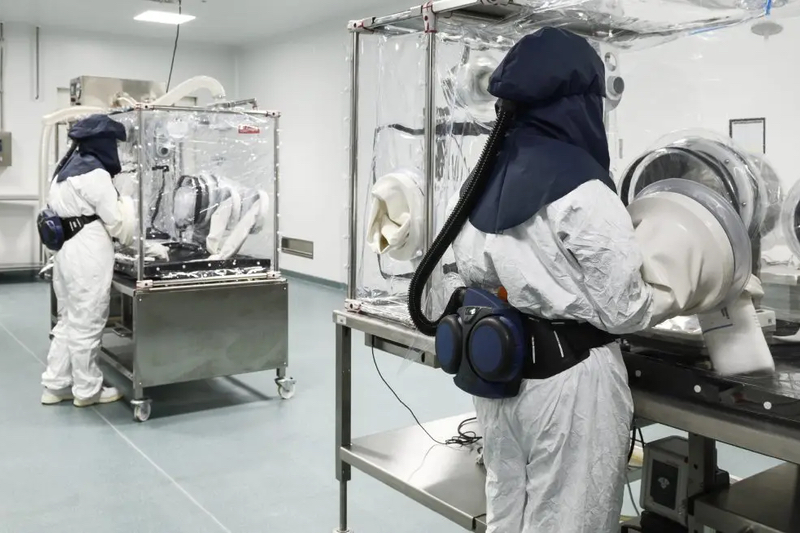
CDMOs in ADC investments
Submitted by:
Andrew Warmington
Five CDMOs across the world have separately announced investments in antibody-drug conjugates (ADCs). Piramal Pharma is to spend $90 million on brownfield expansions at two US sites that are expected to generate greater opportunities for integrated ADC projects, while Veranova will invest over $50 million on a new bioconjugation facility.
Carbogen Amcis will co-invest over CHF 25 million in relation to a long-standing Japanese customer, while Sterling Pharma Solutions has agreed a manufacturing partnership with Kivu Bioscience. Finally, India’s Shilpa Biologicals has opened a dedicated bioconjugation facility alongside its commercial biologics manufacturing facility in Dharwad
At the former Ash Stevens site in Riverview, Michigan, Piramal Pharma is adding a commercial-scale suite to make payload-linkers for ADCs and other bioconjugate drugs to complement existing HPAPI manufacture. This is expected to be operational before the end of 2025.
The company will also add commercial-scale manufacturing for injectable drug products at Lexington, Kentucky. Key features include a new filling line, two commercial-size lyophilisers, a special capping machine and an external vial washer. This is expected to be completed and online by late 2027.
Veranova’s planned development and cGMP manufacturing capacity for ADCs and other bioconjugates at its main campus in Devens, Massachusetts, will enable the site, which also has experience in the development and clinical and commercial manufacture of ADC linker-payloads. Due to open in June 2026, this will create about 70 jobs.
Key features will include will include new process and analytical development laboratories, Grade C cleanroom space, development and cGMP equipment and instrumentation, and supporting infrastructure. These capabilities will support manufacturing of potent and non-potent bioconjugates at up to kilogram-scale.
Meanwhile, Carbogen Amcis will install 850L reactors and 0.4 m3 agitated filter dryers plus supporting equipment at its sites in Aarau and Neuland, with completion in Q1 and Q3 2027 respectively. This will support the production of a linker for a commercial ADC. It builds on an existing joint funding agreement the company made in April 2021 to extend its main site at Bubendorf, also in Switzerland.
“By investing in both Aarau and Neuland, we’re ensuring that our infrastructure keeps pace with our customers’ ambitions,” said Carl Baker, VP of the Drug Substance business unit. “These upgrades will allow us to seamlessly manage increased volumes while maintaining the operational excellence and containment controls required for highly potent APIs and advanced therapies.”
Sterling will make cGMP-quality clinical material for Phase I clinical trials of KIVU-107, Kivu’s lead oncology ADC candidate, at its dedicated bioconjugation facility in Deeside, UK (pictured). Details were not disclosed but Sterling announced last October that it would spend £10 million to double Deeside’s GMP manufacturing capacity.
This agreement includes process familiarisation, analytical development, process optimisation and scale-up activities in preparation for a cGMP manufacturing campaign. KIVU-107 is described as a potential first-in-class antibody-targeted conjugate that enables site-specific conjugation.
“The resulting structure positions the linker-payload in a natural cavity in the antibody, providing excellent stability, reduced hydrophobicity and an increased therapeutic index relative to first-generation ADC therapies,” Sterling said.
Finally, Shilpa’s new bioconjugation facility is currently undergoing validation and is expected to begin onboarding client programmes by September. The new suite is built to support the manufacture of ADCs and other advanced bioconjugates.
It includes 200L single-use bioconjugation reactors and a lyophilisation capacity of up to 65 kg. There will also be development laboratories for process development, analytical characterisation, and both early and late-stage scale-up capabilities.
Shilpa noted that this will place it among the small group of CDMOs able to supply clinical- and commercial-scale manufacturing across all three components of ADCs: payloads and linkers, monoclonal antibodies and bioconjugation. It claims one of the industry’s largest payload and linker libraries, plus multi-ton high-potency API capacity.
